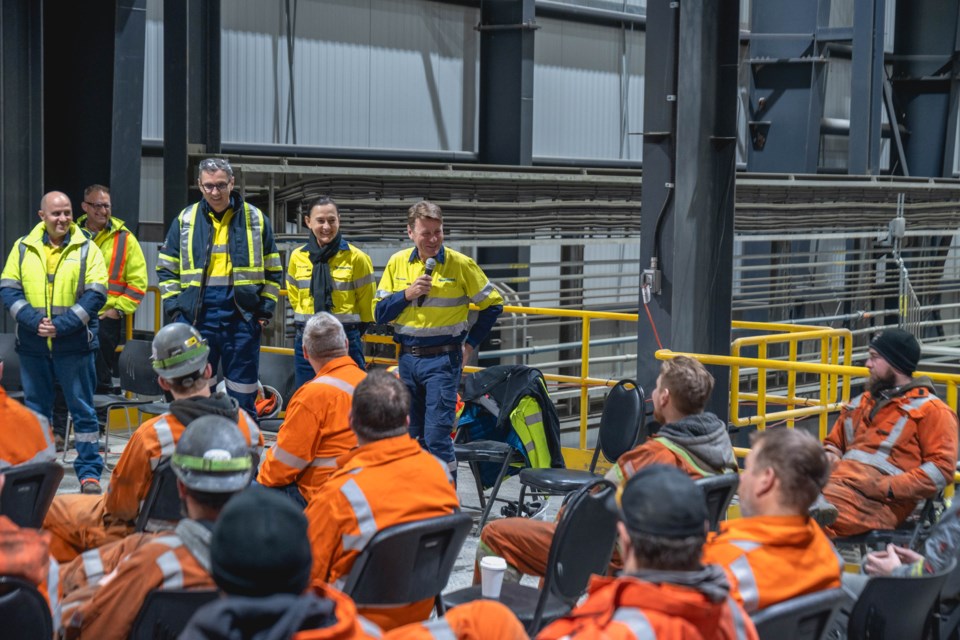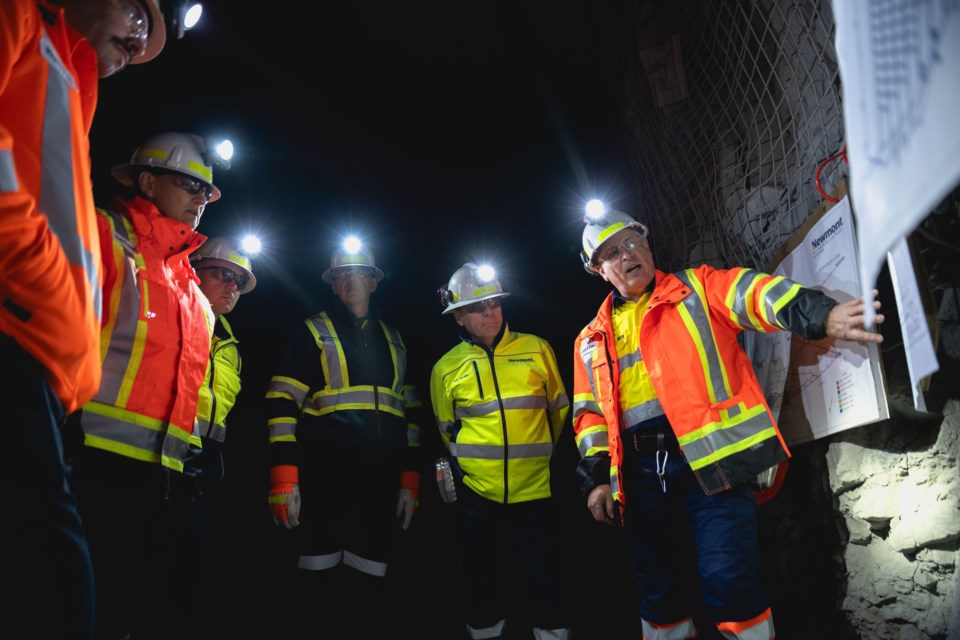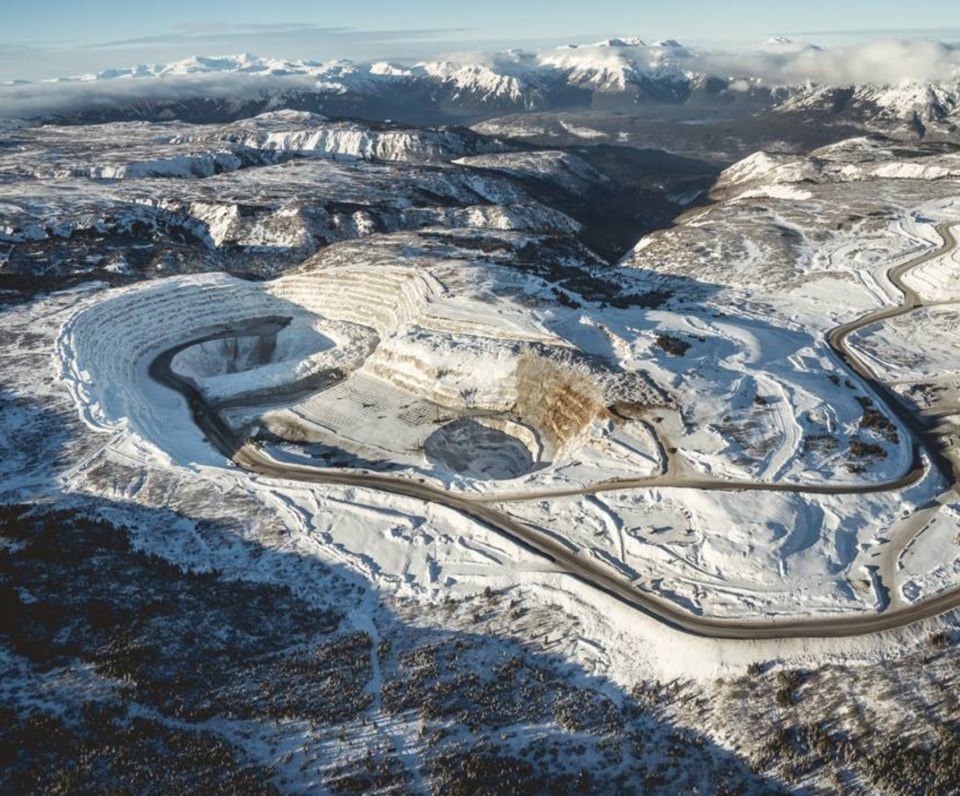Because it’s not headquartered here, Newmont Corp. (TSX:NGT,NYSE:NEM) may never make BIV’s list of the biggest mining companies based in British Columbia.
But the U.S. gold miner married into the family, in a sense, when it bought Vancouver’s Goldcorp in 2019, and it now owns more operating mines in the province than Teck Resources Ltd. (TSX:TECK.B), following Teck’s divestment of its B.C. coal mines.
Teck owns one operating copper mine in B.C.—Highland Valley Copper—while Newmont owns two: The Brucejack gold mine and Red Chris copper-gold mine.
Teck and Newmont also share the Galore Creek copper-gold project on a 50-50 basis.
Though Newmont is headquartered in Denver, Colorado, Vancouver is now Newmont’s North American regional hub, employing 150 people.
For all intents and purposes, Newmont could be considered B.C.’s biggest miner.
The company appears to be rather bullish about B.C., with plans for multibillion-dollar, multi-decade investments in mine development and expansions.
“We think about our presence in the copper corridor of British Columbia as being one that, really, you can see it out to the end of this century,” Newmont CEO Tom Palmer told BIV last week.
Newmont’s Australia-born CEO was in town for a Vancouver Mining Collective event in late October and to visit the company’s Vancouver office. He talked about Newmont’s near-term plans to expand the Red Chris mine with a $2 billion block cave mining project, and longer-term plans to develop Galore Creek—Canada’s largest undeveloped copper deposit.

Following its acquisition of Goldcorp for $13 billion in 2019, Newmont doubled down on B.C. when it acquired Newcrest Mining one year ago for $26 billion. The deal gave the company the Brucejack gold mine and a 70-per-cent stake in the copper-gold Red Chris mine, both located in Northwest B.C.’s Golden Triangle.
“We’re just coming up on 12 months since we closed the acquisition of Newcrest,” Palmer told BIV. “So 2024 has been a year of integration and portfolio rationalization and transition to a new go-forward portfolio.”
The Newcrest acquisition increased Newmont’s global operations to 11 operating mines and three development projects, including Galore Creek. It also boosted its copper portfolio. The company’s North American assets include two gold mines in the U.S. and five in Canada—two in Ontario, two in B.C. and one in Quebec.
“Amongst other things, it significantly expanded our copper reserves to 14 million tonnes, which is particularly exciting for our operations and projects in Northwest British Columbia, where copper mining is positioned to become a cornerstone of the province’s long-term economic prospects,” Palmer said in his speech to the Vancouver Mining Collective.
Newmont’s big focus over the next few years will be a block cave mining plan for Red Chris, which currently operates as an open-pit copper-gold mine.
Block cave mining is an underground mining technique where a series of tunnels are made under an ore body that is gradually collapsed from underneath. Palmer likens it to building a factory underground. He estimates the cost of the block cave project to be roughly $2 billion.

“The thing with block cave mining is you have to do all your development work up front before you start having the cash generate from the mine,” Palmer said. “But once you’ve got it set up, the amount of ongoing investment is quite low.”
The Red Chris expansion will be subject to a B.C. environmental assessment amendment akin to a full environmental review, as a well as a Section 7 consent agreement with the Tahltan First Nation—a new shared decision-making process under the Declaration on the Rights of Indigenous Peoples Act (DRIPA).
Galore Creek, meanwhile, is a longer-term investment that will not even start taking shape before the end of the decade. The massive mine project has an estimated resource of 12 billion pounds of copper, which would increase Canada’s total copper production by an estimated 35 per cent. Its capital cost was last estimated at $6 billion, but that was more than 10 years ago. Its capital expenditure will be updated with a pre-feasibility study that is underway and is expected to be completed in 2025. In September, Natural Resources Canada announced $20 million in funding to help build an access road for Galore Creek.
“Galore Creek is something that we think about as a project we look to develop after Red Chris is up and running,” Palmer said.
He added that it would take four to five years to develop a block cave mine.
“When you think about timing for Galore Creek, you’re looking at something that’s into the 2030s,” Palmer said. “We think about our presence in the copper corridor of British Columbia as being one that, really, you can see it out to the end of this century.”
Another longer-term project is Saddle, which is in the vicinity of Red Chris. Newmont acquired it in 2021 from GT Gold for $393 million. Developing the Saddle project will require the consent of the Tahltan First Nation, Palmer said.
“What we said from the very get-go is it’s wonderful deposit, but we will only look to explore and develop it with the consent of the Tahltan,” Palmer said.
“There’s a number of deposits now that Newmont has within that region, of which Saddle is one, and you’ve got a number of deposits around the first block cave at Red Chris that is also part of this multi-decade story,” he said.
“It sits there as a very important deposit, but one that will be developed in the right sequence and with the consent of the of the Tahltan.”
As for B.C.’s reputation for having an overly sclerotic environmental permitting regime, Palmer said he doesn’t find it to be all that more onerous than other jurisdictions.
“If anything, I would say there is a level of alignment here in British Columbia for the importance of being able to sustainably develop these ore bodies, to provide some of these critical metals, to do so appropriately, and to look for ways to efficiently produce those permits,” he said.
“That is, I would say, encouraging in terms of what I experience in other parts of the world. So I think there’s a real focus and an alignment that bodes well here in British Columbia.”
(Editor's note: The original story referenced the Tatogga-Saddle project that it acquired from GT Gold in 2021, which Newmont has renamed simply as the Saddle project.)




